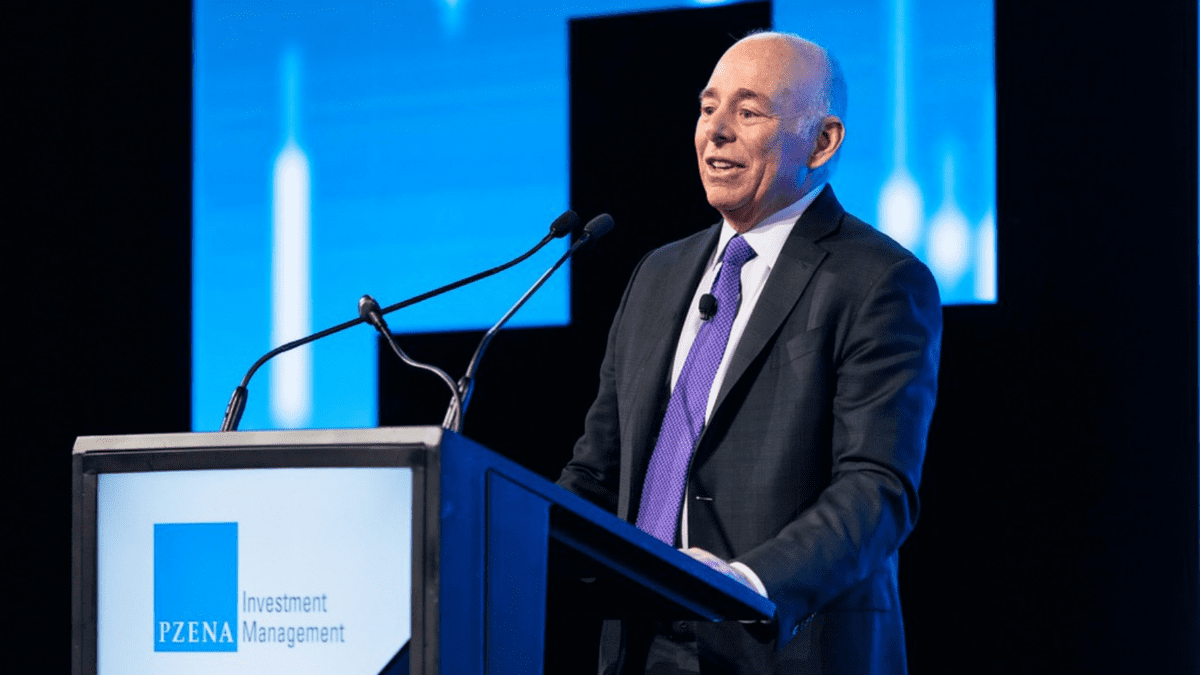Asia, small caps poised to benefit in changing market environment
With a heightened focus on rising inflation, growing geopolitical instability and the end of easy money, it’s safe to say markets in 2023 are in a period of flux. For investors, that dynamic can spell opportunity, and Asian markets and the small-cap sector are especially poised to benefit from the changing environment, according to Man Group and Prime Value Asset Management.
“The outlook for the asset class today is more positive than I’ve seen in a long time,” head of Asia (ex-Japan) equities Andrew Swan (pictured, left) told delegates at The Inside Network’s Growth Symposium last week, after confessing he has never been a “cheerleader” for his asset class.
“But this actually feels like the right time to be talking about it,” he continued. “The time to own this asset class is when either growth in the region is accelerating or is expanding versus developed markets. There’s an absolute and a relative case.”
The improved outlook stems in large part from the contrast in how Asia experienced the COVID-19 pandemic compared with the rest of the developed world, Swan said. Outside of China, where there are pockets of high debt levels, “it’s a market that hasn’t seen the benefits of excess liquidity over the last few years, and even beyond that”, he said, noting that the region lacks the asset bubbles, inflation concerns and labour market shortages plaguing much of the rest of the world.
“We’re actually on the cusp of an easing cycle in Asia, while the rest of the world continues to face a tightening cycle.”
Swan did note that it’s “not all roses” – the mobility-led recovery in China may be more shallow and narrow than many expect, although he thinks it will be a year in which growth improves there. He also pointed out that most of the build-up in banking deposits in the Chinese banking system is not excess savings but a more systemic move away from property and wealth management in the country led by government signalling. In short, “this is not a time when China is going to save your portfolios”.
However, overall economic growth in Asia is poised to improve over last year, Swan said. “That can’t be said of many markets in the world at the moment – that means it’s the ideal time to own it from an absolute-return point of view, but also a relative-return point of view.”
“We have an economic recovery going on in Asia at a time when the rest of the world is dealing with inflation and slowing growth, and potentially a line in the sand on global liquidity. Whatever global liquidity there is will find its way into these markets.”
And while he touted the “extremely high” return potential for smaller economies, he was keen to explain that markets in Asia are driven corporate profitability, which is sometimes correlated to economic growth but sometimes not. “Things like flow, positioning and valuation are all secondary concerns to corporate profitability.” A company’s fundamentals are key.
Small caps set to shine
Swan spoke in a session along with Richard Ivers (pictured, right), portfolio manager at Prime Value, who tackled the misconception among many market participants that small caps are “highly cyclical, highly speculative, low-quality businesses” and explained how this sector is poised for a major rebound.
Small caps are more volatile than large caps, Ivers explained – but that means that while they historically have greater falls than do large caps, they also rebound more in an upturn. Small caps have fallen 19 per cent in the past year’s downturn, while large caps have not fallen much, he noted.
“They are more volatile, so when markets fall, they fall more. They’ve already fallen a lot, so at some point markets are going to rebound and this is going to give you leverage,” he said.
“You’ve got to ask yourself the question, when things rebound, which is going to rebound the most? And equities lead the economy, so you can’t wait until things look good before you start investing in small caps.”
As for the misconception that small-cap companies are lower quality and speculative, Ivers countered that small-cap fund managers “are good at outperforming” and that the companies in the sector “are bigger and better than many people think”, with the Small Ordinaries average market cap at $1.5 billion, the average price earnings ratio at around 16 times and average net profits after tax of $100 million.
“These are small caps, but not necessarily small businesses, and they represent about 13 per cent of the Australian equity market, which is a significant proportion.”











